Other
Practice and Review Ser vs. Estar
An excellent review of the uses of ser and estar. Provides useful examples. After reviewing, the user can take a practice quiz to ensure complete understanding.
Other
Review and Practice: Past Participle
This site reviews the uses and the formation of the past participle in Spanish. After this review, the user may choose to complete practice activities to test comprehension.
Indiana University
Indiana University: Las Clausulas Condicionales
This site from the Indiana University provides a concise but thorough Spanish explanation of conditional clauses in Spanish grammar. Examples in Spanish and English of which tenses to use to express different conditional clauses that use...
Online Writing Lab at Purdue University
Purdue University Owl: Prepositions of Direction: To, On(to), In(to)
Maintained by the Purdue University Writing Lab, this tutorial focuses specifically on the three prepositions mentioned in the title. After a general introduction, the site specifically discusses each preposition and presents examples.
Online Writing Lab at Purdue University
Purdue University Owl: Prepositions of Location: At, In, On
Maintained by the Purdue University Writing Lab, this tutorial focuses specifically on the three prepositions mentioned in the title: "at", "in", and "on". Explains spatial relationships and examines "in" and "on" more closely.
Online Writing Lab at Purdue University
Purdue University Owl: Prepositions of Spatial Relationships
Maintained by the Purdue University Writing Lab, this tutorial has pictures to represent the various relationship among objects in a given space. Good for visual learners.
University of Calgary
University of Calgary: Parts of Speech Conjunctions
Nice website that offers an explanation of coordinating, subordinating, and correlative conjunctions, along with examples of usage and an interactive quiz.
University of Calgary
University of Calgary: Parts of Speech: Adverbials
This site, sponsored by the University of Calgary, has good information on what adverbials and conjunctive adverbs are, what they do, and how they are used. Examples and a list of conjuctive adverbs are also given.
University of Calgary
University of Calgary: Sentence Elements: Prepositional Phrases
This section of an online grammar guide explains how to identify prepositional phrases.
University of Calgary
University of Calgary: Sentence Elements: Noun Clauses
This section of an online grammar guide provides instructions and examples for using subordinate (dependent) clauses as nouns in constructing sentences.
University of Victoria (Canada)
Elc: Study Zone: Basic Coordinating Conjunctions Exercise
This quiz asks students to supply the missing conjunction from complete sentences. Features simple exercise.
University of Calgary
Basic Elements of English: Appositive & Absolute Phrases
This section of an online grammar guide provides definitions, examples, and an interactive exercise on identifying appositive and absolute phrases. L.9-10.1b Phrases/Clauses
Rutgers University
Rutgers University: Guide to Grammar and Style: Numbers
Covers when to write or spell out numbers in writing.
BBC
Bbc: Skillswise: Making Sentences [Pdf]
Discover how to make sentences through this BBC Skillswise worksheet.
PBS
Pbs Learning Media: How to Use Intensive Pronouns
Intensive pronouns add needed emphasis to a sentence. While they function similarly to reflexive pronouns, they differ in that the pronoun can be removed without altering the meaning of the sentence. [0:57]
PBS
Pbs Learning Media: How to Use Correlative Conjunctions
Either, nor? Or, neither? Neither! You use correlative conjunctions in connecting two equal grammatical items. If a noun follows "either," then a noun will also follow "or." If a noun follows "neither," then a noun will also follow...
PBS
Pbs Learning Media: How to Punctuate Items in a Series
Another way to confuse readers or audiences is not using commas and conjunctions when listing items in a series. Always use a comma in between items in a series, and use a conjunction before adding the last item in a list. [0:44]
PBS
Pbs Learning Media: How to Use Commas With Conjunctions
Conjunctions can join two separate clauses, but sometimes they need commas. Learn how to do so correctly with this video. [0:48]
PBS
Pbs Learning Media: How to Use Conjunctions
Conjunctions are a part of a speech that connects different parts of a sentence, such as groups of words, clauses, or phrases. [0:41]
PBS
Pbs Learning Media: Reflexive Pronouns and Subjects
Reflexive pronouns reflect the subject of the sentence. A reflexive pronoun is a pronoun that is preceded or followed by the noun, adjective, adverb, or pronoun to which it refers within the same clause. [0:35]
PBS
Pbs Learning Media: Proper Case for Pronouns
Pronoun case is determined by how we use the pronoun in a sentence. There are three ways: subjective, when the pronoun does something; objective, when something is done to our pronoun; and possessive, when our pronoun possesses...
PBS
Pbs Learning Media: Irregular Plural Nouns
While plural nouns often indicate more than one of something with a simple "s" or "es," irregular plural nouns do not. They change the word entirely. Elf becomes elves, tooth becomes teeth! [0:45]
PBS
Pbs Learning Media: Hyphenation Conventions
This video [0:48) discusses how hyphens indicate specific nouns from compound words. Without them, they could refer to completely different things! Know when and how to use them.
The Tongue Untied
Tongue Untied Correlative Conjunctions
Maintained by the University of Oregon School of Journalism and Communications, this site offers numerous examples of the rules of correlative conjunction usage. Also has hyperlinks to sections on subordinating conjunctions, coordinating...


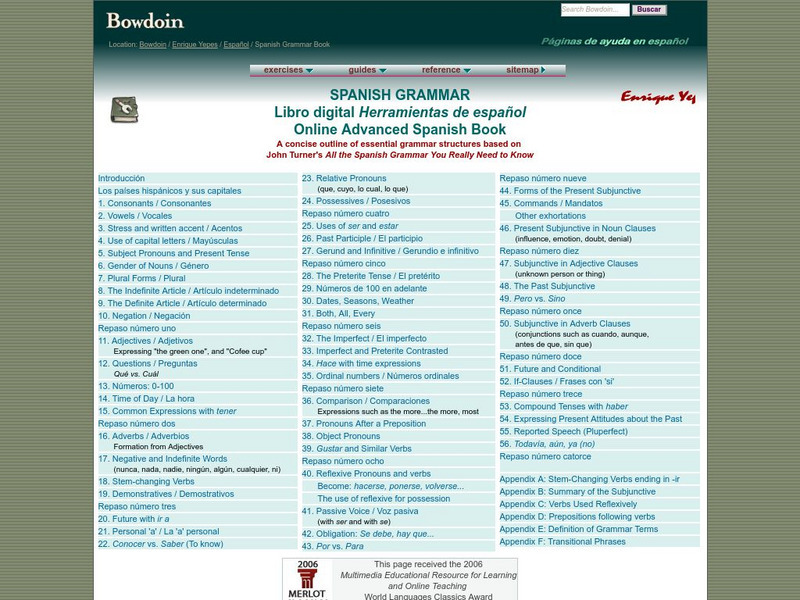
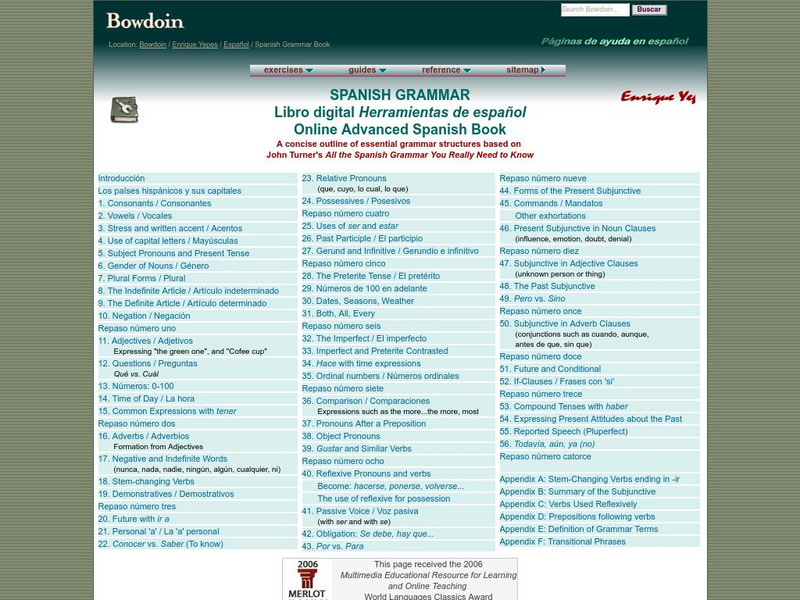


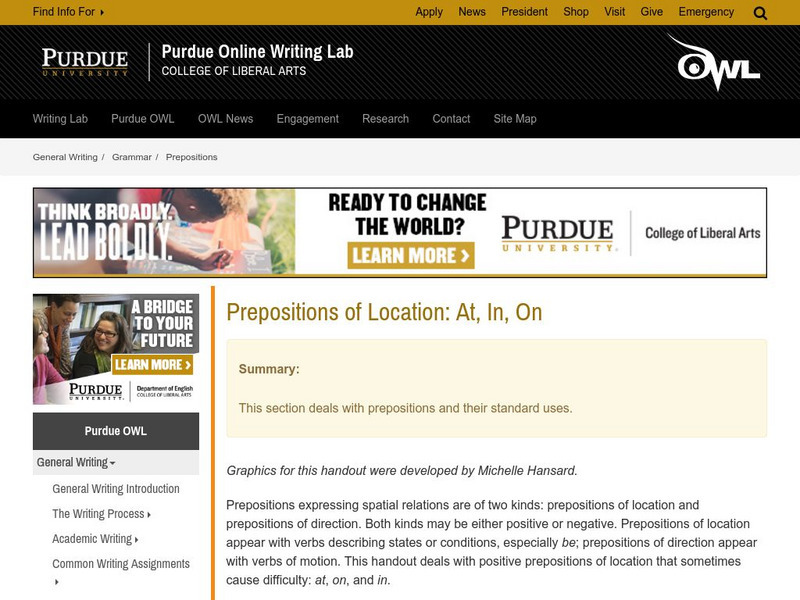

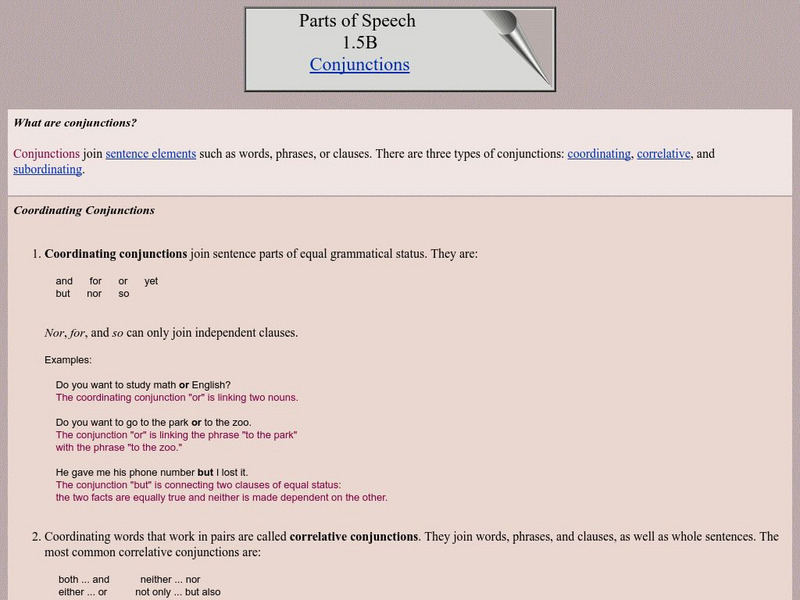



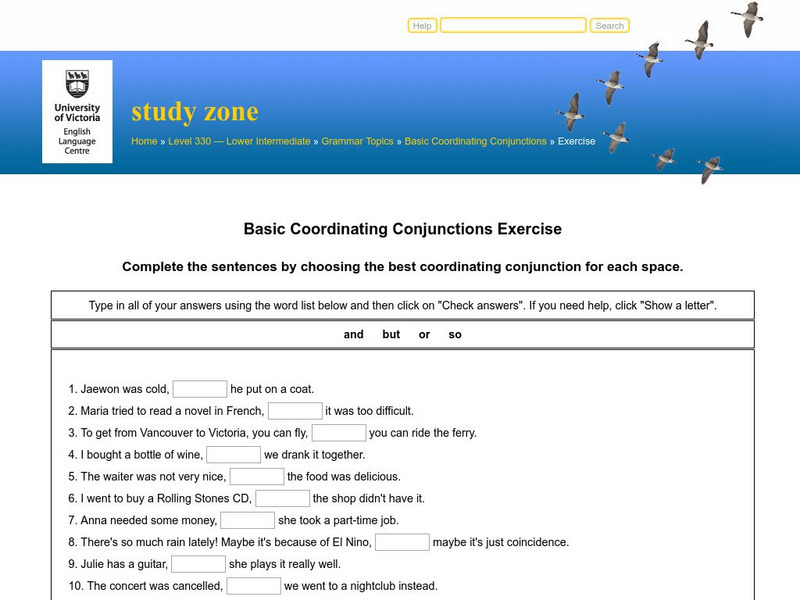

![Bbc: Skillswise: Making Sentences [Pdf] Unknown Type Bbc: Skillswise: Making Sentences [Pdf] Unknown Type](https://content.lessonplanet.com/knovation/original/870286-d36011cd4b30a0ec538e00101ac2c2a2.jpg?1661269973)